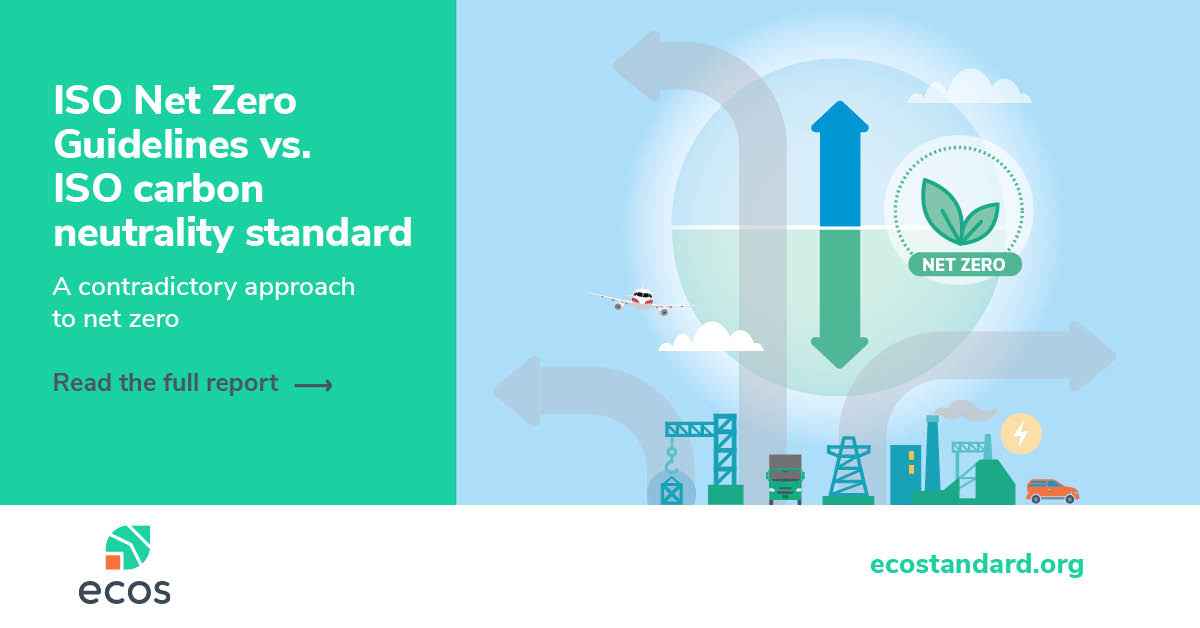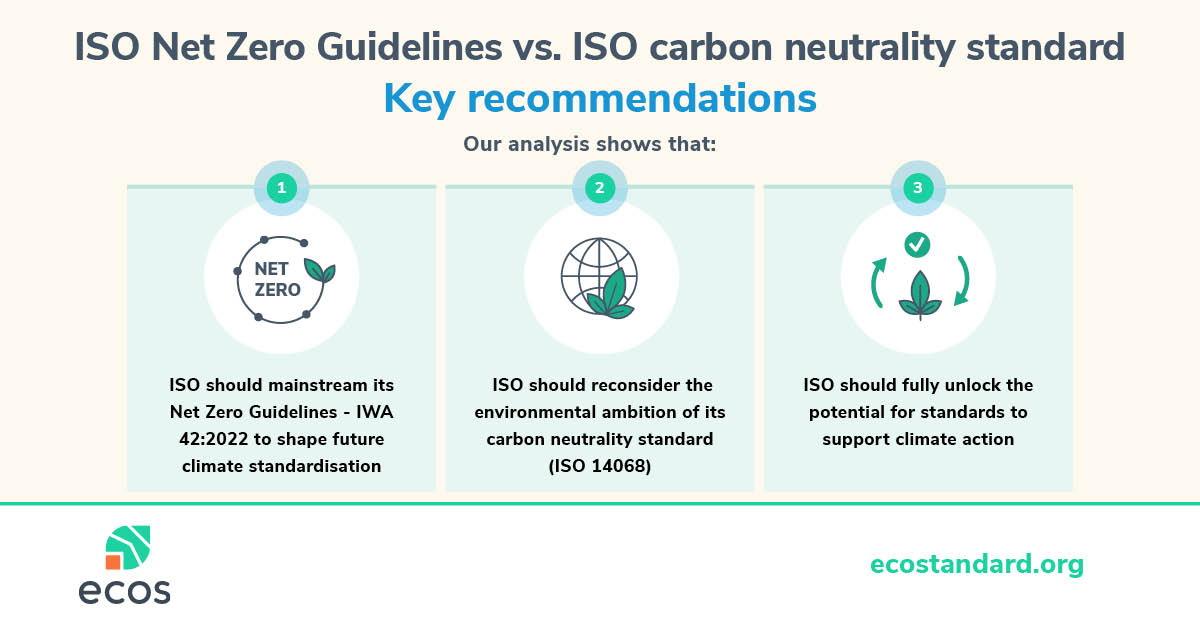ISO Net Zero Guidelines vs. ISO carbon neutrality standard – a contradictory approach to net zero
Companies that make no changes to their usual practices but claim their products or operations are climate neutral by buying carbon offsetting credits are greenwashing. The European Union recently took the same stance with new rules on green claims and empowering consumers. Our report reveals that a leading international standard rubberstamps practices that contradict these laws and are not aligned with the goals of the Paris Agreement.

With multiple definitions and methodologies, net zero and carbon neutrality claims are a maze. They can be misleading, confusing, inaccurate, or all the above. Standards setters should bring clarity to companies. Instead, ISO (the International Organization for Standardization) has published two different tools to guide and demonstrate climate claims.
- ISO Net Zero Guidelines (IWA 42:2022) are ambitious with strong environmental principles.
- ISO climate neutrality standard (ISO 14068:2023) endorses misleading carbon offsetting claims and could be used as a tool to greenwash.
Every company generates emissions, but buying carbon credits does not magically make them vanish. The path to carbon neutrality must begin with emissions reduction. Relying instead on offsets can mask wildly different levels of climate (in)action and are not credible.
Our recommendations

- ISO should mainstream its Net Zero Guidelines – IWA 42:2022 to shape future climate standardisation
- ISO should reconsider the environmental ambition of its carbon neutrality standard (ISO 14068:2023)
- ISO should fully unlock the potential for standards to support climate action


